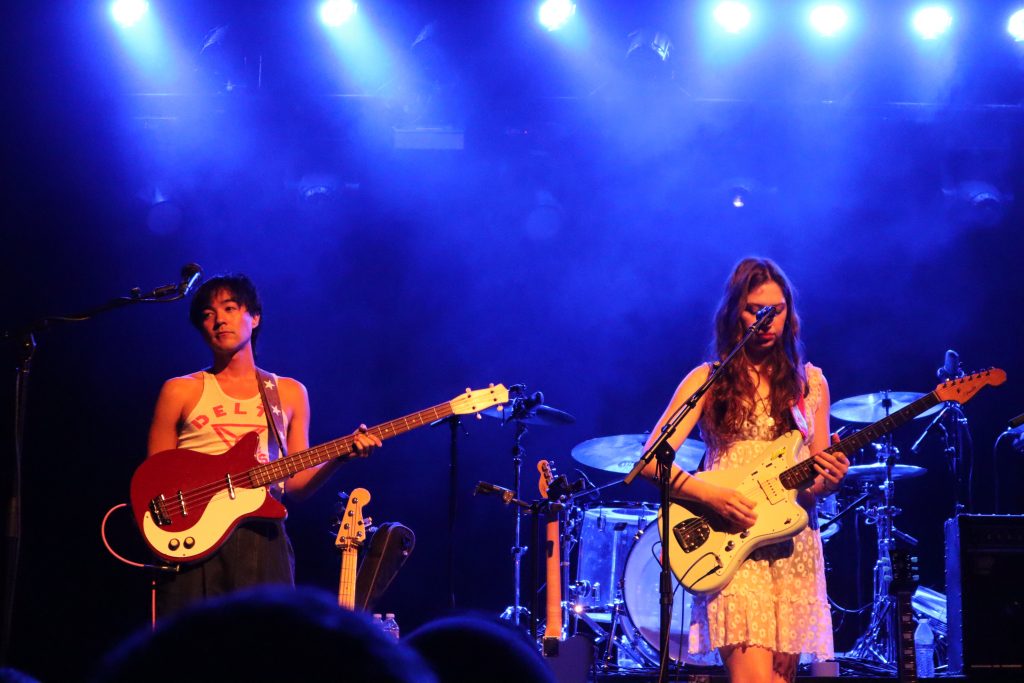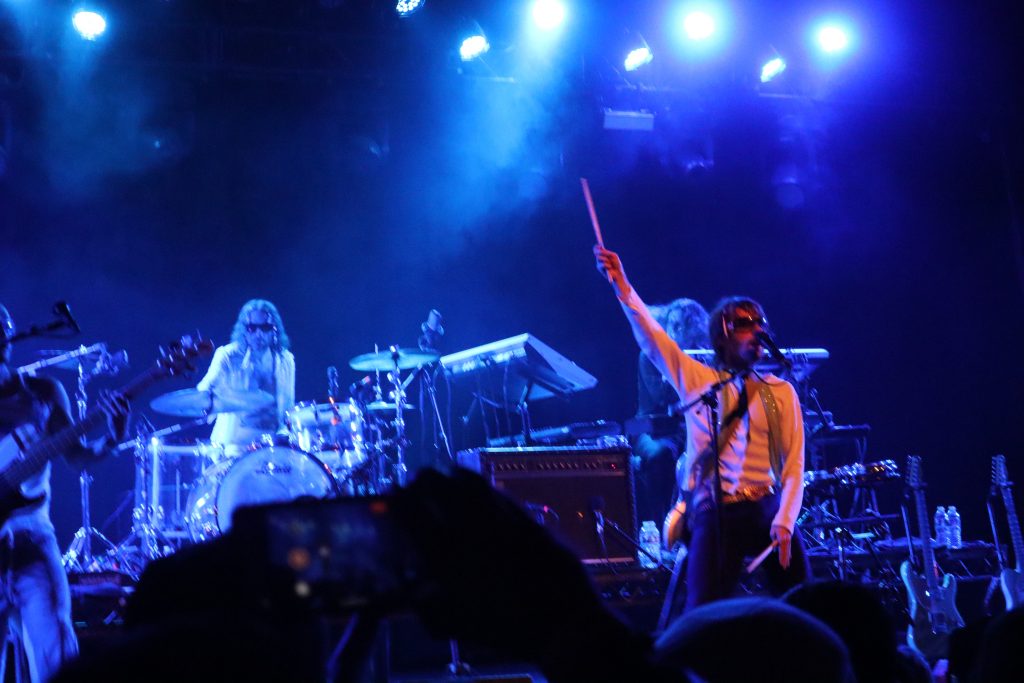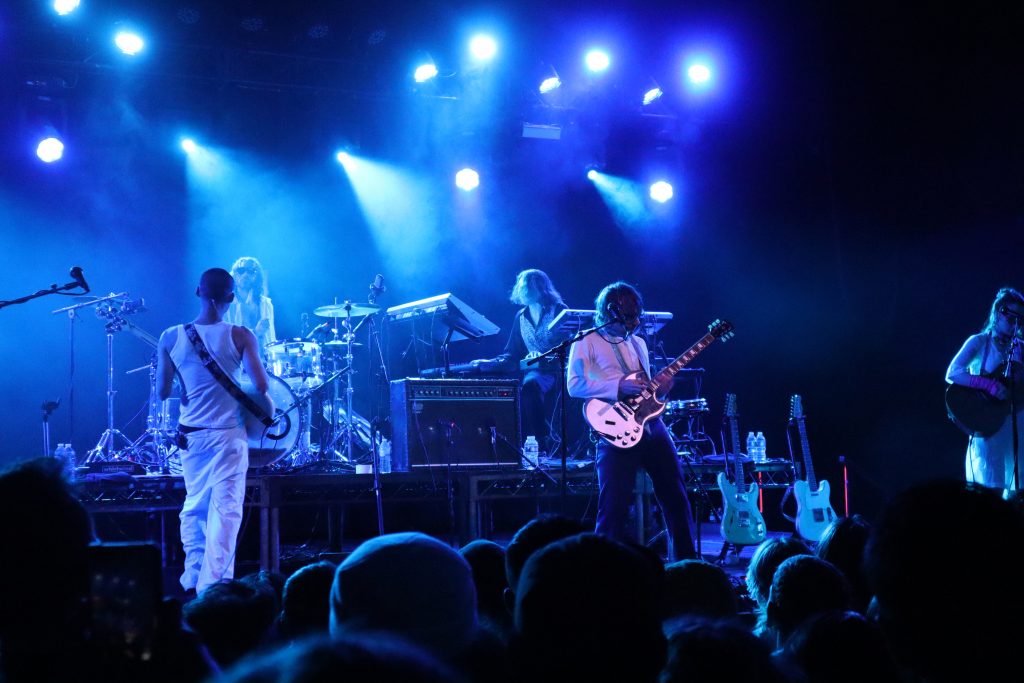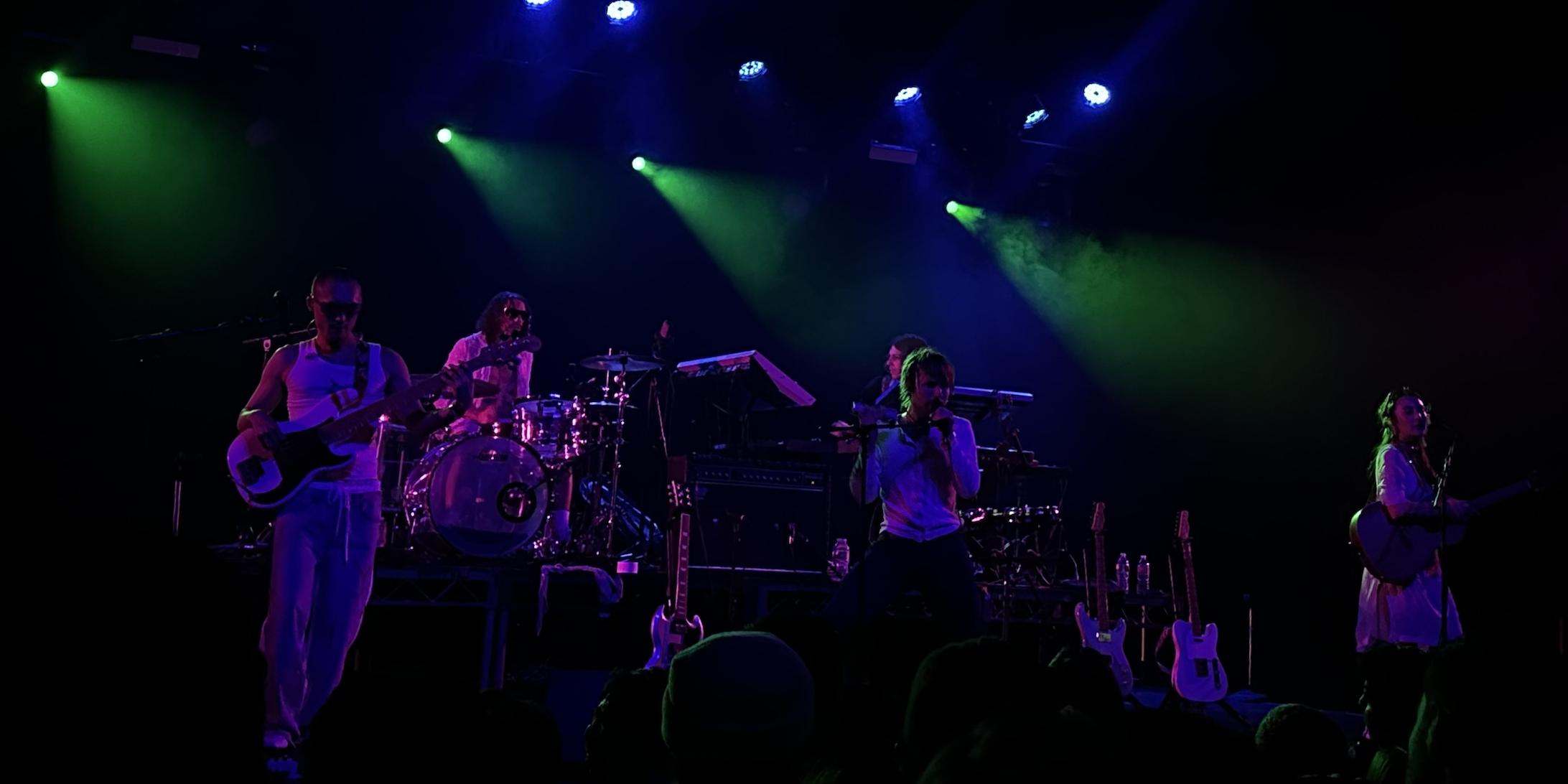By: Winnie Xu and Lexi Tabacu
My dear friend recently shared with me that she is always humming a song in her head; at all times, there is a melody. The song changes with the seasons and her surroundings, but it is always there; a commemoration as solidifying as it is devotional. When Lexi and I saw Lewis Ofman perform at the Fonda last Friday, May 24th, it felt like we were let in on Ofman’s own ongoing song, one that he couldn’t imagine keeping just to himself. His performance transcribed a musical talent that is full of body, tremendously vibrant, intimate, yet boldly romantic to a crowd. It is an extraordinary paradox that Lewis Ofman’s Parisian accent is faint as he sings because he brought an otherworldly Parisian charm to Los Angeles, to all of us in the Fonda, and all around us on Hollywood Boulevard.

Alaska Reid, Lewis’s opening act.
Lewis Ofman, born Lewis Pierre Simon Delhomme, is a singer, song-writer, and producer from Paris. I would describe his music as a blend of Daft Punk, classic French disco, and an honest synth-pop alluding to his rhythmic training as a drummer. Ofman’s performance of “Hey Lou” embodied the intimacy of his performances, despite his popular discography consisting of “Attitude” and “Siesta Freestyle’.’ These heaviytechno-beats and synth, albeit so much fun, despite featuring few lyrics of note. “Hey Lou” was especially memorable because in the middle of the concert, a father hoping to gain clarity on an argument with his daughter turns to us bashfully, yelling, “Is that woman”-pointing to Ofman’s vocalist and guitarist Anna Liu Cannon-, “the same woman as the opening musician?” referring to Alaska Reid, who opened with a frank, charming indie-rock performance. I giggled, “I actually don’t think they’re the same race! Also, they look nothing alike.” He yelled over Ofman’s proclamations of “Siesta!,” “Well! We all look somewhat alike!” I remember laughing off his sentiment, securing my camera strap on my shoulder, and jumping up and down as Ofman burst out, “Dance!! I want to see…dance!!”

I believe that the music venues the artist chooses is incredibly special, because while the musical experience is transitory, the architecture is a space in which this music takes shape, where the distance between the audience and the musician is only art. I remember during “Je pense a toi”, the collective voice of Lexi next to me, the father to my right, the couple twirling behind me, the cute boys to my left, singing along with Ofman “et toi, et toi, et toi…”. “Et toi” meaning “and you” in French, I think that perhaps in that moment, we did all look somewhat alike. In the many moments before that, drinks were spilling in collective exuberance with “Siesta Freestyle”, girls bumped hips to the four to floor beats, and I grabbed onto Lexi. This is the best night ever, I remember yelling.
There is nothing quite like seeing the Fonda come alive— Ofman’s voice had an incredible jubilance, the acoustics rang true again and again. There were moments where he prompted the crowd to sing along, “ta na…da”. The intimacy of collective voices harmonizing with Ofman’s synth created such a harmony I could hardly believe I thought I was just going to a disco concert. I continue to be impassioned by the concept of boundaries and literary structures of music, and Ofman’s crafted acoustics and reverence for his beats, the bass, and spontaneity leaves behind a mosaic of an artist that can only be described as a romantic.

As he nears the end of his set, Ofman actually performs an additional 30 minutes more than planned because, as he lamented, Friday was the last performance of his North American leg of his tour. As he sang his ballad “Frisco Blues”, dreamlike acoustic verses where he repeats, “and I love you so… love you so…Develop what you have in mind, get that sparkle, out of your heart…and I love you, so” in a way only a true French man could. Lingering, audacious, and full of playfulness.
Dear Lewis, stay awhile, linger by the door, Los Angeles will remember you, I really believe it. As Lexi and I stepped outside, right next to hot oil sprinkling off the carted vendors selling street hot dogs (possibly the best 7 dollars you will never miss), a street saxophonist plays along to the backtrack of Ofman’s Siesta, providing another layer of remembrance of the glittering show. From Ofman’s affection to his reverence for the musical instruments, there is a synthesis that is just as much his artistry as his voice, revealing a stark truth that music defines a space. That night, it defined the Fonda with an ongoing song we will be humming for a very long time, and a music venue left with very sticky floors. There exists a harmonious texture of celebration, I hope it lingers on Hollywood Boulevard.




